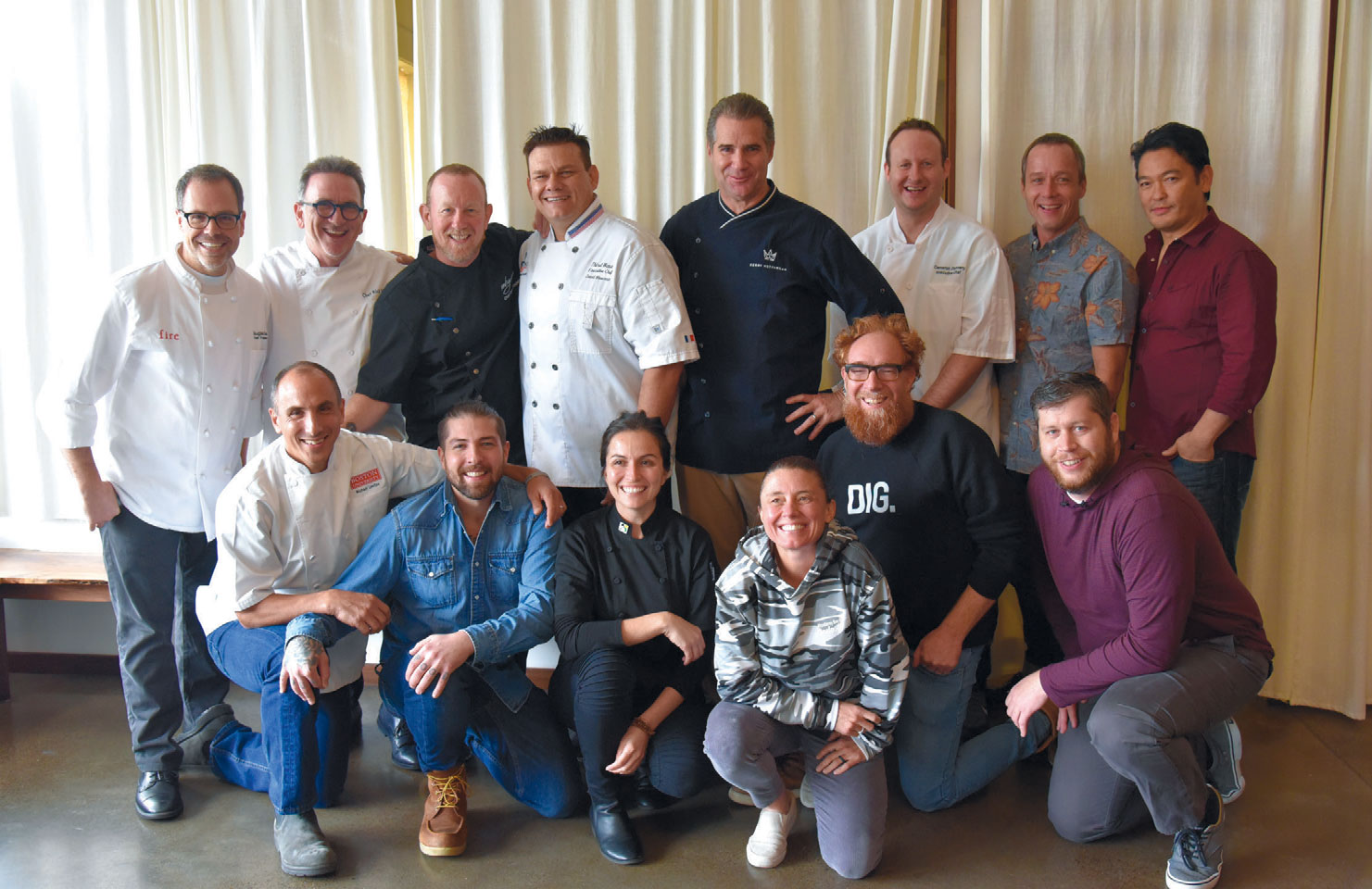Portland Pact for Sustainability
Chef Steve Phelps’s name is synonymous in the dining scene with sustainability. He has made a commitment to serve local, responsibly sourced seafood at his restaurant, Indigenous, and he has taken that commitment one step further by signing the Portland Pact for Sustainable Seafood, an initiative of the Monterey Bay Aquarium (MBA) that is now being pushed forward by chefsforfish.org.
The pact helps to the protect the Magnuson-Stevens Fishery Conservation and Management Act (MSA), which is the law governing marine fisheries management in U.S. federal waters. The policy’s success allows for chefs to offer domestic seafood that meets environmentally safe standards. Because of this act, overfishing is at all-time lows. Key objectives of the act include requiring that management decisions be science based, preventing overfishing, conserving essential fish habitat, and ensuring a safe and sustainable supply of seafood.
Currently, 109 chefs from 27 U.S. states have signed the act along with Phelps, who is leading the charge in the Sarasota area. For him, it is not about only doing something on a local level, but rather helping to spread national awareness.
The Portland Pact offers an opportunity for chefs and small-business owners around the country to get involved and to proactively support the continued success of the MSA.
Phelps is also part of the Monterey Bay Aquarium’s Seafood Watch Blue Ribbon Task Force. It is comprised of 50 of the country’s top chefs, who are selected for their leadership roles and commitment to the sustainable seafood movement, supporting a healthy ocean, and working to bring awareness to customers, colleagues, and policy makers.
“It’s an honor to be part of that team,” Phelps says.
What can consumers do? Phelps advises to continue to ask where the seafood you are buying came from, whether you are at the grocery store, fish market, or out at a restaurant. You can download the Monterey Bay Aquarium Seafood Watch app and find restaurant and grocery market partners that provide sustainable seafood. The app also contains an A–Z list of fish species with a stoplight guide indicating best choices, good alternatives, and which seafood to avoid based on where the fish came from and methods with which it was caught.
Some local species to look for include barrelfish, cobia, and snapper varieties such as margate, yellow eye, queen, mangrove, and mullet. If you don’t see them in markets or on menus, ask purveyors for them. A larger demand can help the local economy by creating fisheries and providing jobs.
“We need this precious protein,” states Phelps.





